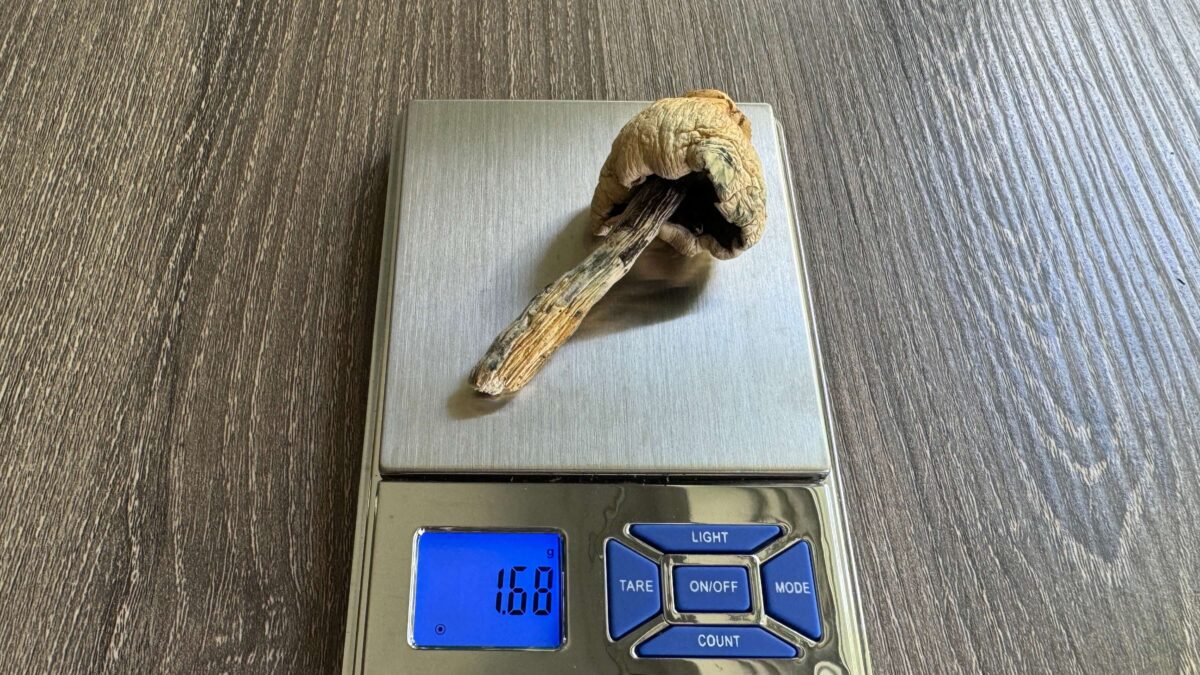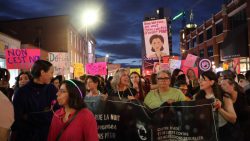As Canada wrestles with a growing demand for access to magic mushrooms by people craving mental health improvement, Capital Current’s Victor Vigas Alvarez takes a four-part look at the ins and outs of this growing debate. Today: The fungi and the spirit.
The history of magic mushroom use is long.
What started in ancient healing ceremonies conducted by Indigenous societies has evolved into trips taken by recreational users and clinical trials as part of high tech medical research.
Many people have often claimed that psilocybin mushrooms help them explore their spirituality through the psychedelic experience.
Psilocybin mushrooms and other psychedelics are incredibly interesting. They’ve been around for millenia, grow out of the earth and can induce intense and complex states of consciousness. It’s only natural that people want to know more about these curious fungi. But that can have disastrous consequences.
Consider the case of Maria Sabina. She had no idea what she was getting herself into by allowing foreigners to observe and participate in a healing ceremony that included the use of psychedelic fungi.
Born in 1894, Sabina was a Mazatec woman who lived in Oaxaca, Mexico. She used psilocybin mushrooms as a healing method through ceremonies called veladas.
Sabina called the mushrooms, “Los niños santos”, in English, “The holy children.”
In 1955, American Gordon Wasson convinced Sabina to let him and his wife take part in one of these ceremonies.
Two years later, Wasson published an article in Life magazine about his experience. The article made Sabina famous. People the world over began to come for these healings. Celebrities such as John Lennon and Walt Disney are rumoured to have been among the foreigners that poured in.
The fame was disastrous for the ceremony and for Sabina.
Some tourists having a “bad trip” would run naked through the town. Her home was frequently raided by police. Her community turned on her. Her home was burned down and her son was murdered.
The example of Sabina is a cautionary tale for those examining the efficacy of psilocybin use for medicinal and for recreational use.
For example, Amy Bartlett, a member of the Ottawa Psychedelic Education Network, a local “community for those interested in psychedelics, entheogens, plant medicines, plant teachers and non-ordinary states of consciousness” says that: “(psychedelics) are for anyone who wants to use them and their reasons can be therapeutic, spiritual, recreational, all are valid, but they shouldn’t be prescriptive.”
The PhD student in psychedelic studies at the University of Ottawa believes there are inherent issues with limiting access to psychedelics to a medical system or a medicalized model.
“Among these is the underlying assumption that a person needs a diagnosis or to be deemed ‘unwell’ to use these substances,” she told Capital Current. “This also presumes that using these substances for ‘healing’ or for therapeutic purposes is the only valid purpose.”
“There are also fundamental questions about what is considered valid knowledge,” a reference to history of psychedelic use over millennia including Mayans in Central America, who referred to hallucinogenic mushrooms as “flesh of the gods,” or the use of the ayahuasca plant by the Tucano people in Brazil.
Dr. Tehseen Noorani, a well-known researcher into the efficacy of psycedelics, says he believes such research can operate colonially.
“(Psychedelic research) uses a reductionist lens to focus on an individual compound—such as psilocybin—and frame it as the key to curing a problem we hold within us,” he said in an interview for the journal Sapiens. “Then it seeks to own, scale, and export ways of administering these compounds, including administering them to the people from whom the original knowledge and plant medicines were taken.”
I don’t want to create this false illusion just because we can’t make it perfectly safe means there should never be anybody who uses a psychedelic, but I want science that is reliable. I want both science and a discussion around it to have a critical and truth-seeking, where criticism is better welcomed instead of treated as the enemies of one’s religion.
Joe Welker, pastor and author of works about of psychedelics, religion and spirituality
Joe Welker, a pastor at East Craftsbury Presbyterian Church in Craftsbury, Vermont has also written extensively about the intersection of psychedelics, religion and spirituality. His series, Psychedelic Candor, describes issues with a psilocybin study on the mystical experience of religious leaders who consume the compound.
Welker says he supports religious freedom to use psychedelics, even though he doesn’t personally agree with it necessarily being a tool for religion. He opposes what he considers pseudo-science that promotes psychedelic use as part of a campaign to promote a certain kind of religious or spiritual experience.
“(It’s) science with a social agenda.”
Despite the number of underground churches and organizations using and administering psychedelics, Welker says he believes safety is an issue.
“I strongly believe that it is impossible to make psychedelics fully safe,” said Welker. “I don’t want to create this false illusion just because we can’t make it perfectly safe means there should never be anybody who uses a psychedelic, but I want science that is reliable. I want both science and a discussion around it to have a critical and truth-seeking, where criticism is better welcomed instead of treated as the enemies of one’s religion.
“There is no perfectly safe surgery either, right? You take that into account when you decide ‘I’m going to have surgery or not,’ knowing it might go poorly,” he said.
Welker told Capital Current that the question of using psychedelics in society boils down to different ideological beliefs on how a substance ought to be used. He said that organizations that try to advance psychedelics as something great for society at large presume it to be “the right side of history.”
Dana Larsen, a Vancouver drug advocate and owner of three psychedelic dispensaries, believes the case for psilocybin and psychedelics parallels the case for legal cannabis, but that it doesn’t have as much support.
“To get the laws changed requires it not only to be … a political consensus, but to be at the top of the agenda and cannabis really was a very large, political, social, cultural movement going on … and as (for) psychedelics it’s not quite there yet.
“I think it needs more pressure, more shops, more awareness and more decisions that not only is something important on the back burner, but important enough for a political party to campaign on it to make the change happen and to actually end the prohibition,” said Larsen.
He thinks big changes in the laws around psilocybin and other psychedelics will come with the next federal Liberal government after the current one.
“I don’t think that (Prime Minister Justin) Trudeau has an appetite for (legalizing psilocybin) because he did cannabis and they’re getting a lot of pushback on the drug stuff, so I don’t think he’s going to do it. If the Conservatives get in there I don’t think they’ve got any chance of doing that other than if they’re forced to by court decisions.
“Sometimes having a government that’s more hostile motivates people to push back more so my prediction will be the next Liberal government after the current one will be the one in a few years.”
Paul Lewin, a Toronto lawyer currently defending a spokesperson for a London, Ont. mushroom shop, FunGuyz, sees the future of psilocybin shops in a regulated environment where average patrons who have been screened for safe consumption can come and consume the mushrooms responsibly.
“It’s not going to be an open drug market, where you go to Yonge and Dundas, and everybody’s sharing needles. It’s going to be a very real Canadian style solution, in which it’s going to be kind of practical and responsible. A tiny bit dull, but even putting our dull Canadian spin on it will not take it away from the glory that is psilocybin, and people will still have amazing experiences on it.”




